Various Types of Macadamia
Style 0 - Super Premium Whole Kernels
Super premium wholes are the king of macadamias. They are sometimes called ‘super mac’ because of the exceptionally large kernels, which range from 20mm upwards. This style comprises no less than 95% large whole (+20mm) kernel, carefully screened to ensure consistency of colour, texture and size
Style 1 - Premium Whole Kernels
Premium wholes are the most popular macadamia shape and size, because of their versatility and value for money. Premium wholes consist of a minimum 95% whole kernel with a size range from 17mm to 20mm.
Style 2 - Premium Wholes & Halves
Premium wholes and halves is a 50/50 mixture of whole kernel and large halves ranging in size from 13mm upwards. This range is one of the most versatile styles, with a variety of commercial applications. The blend of wholes & halves can be tailored to your specific requirements.
Style 3 - Premium Cocktail Mix
Premium cocktail mix is a style that fits between the table nuts and those used only as ingredients. Almost all half kernels or larger, with an average size larger than 13mm.
Style 4L - Premium Large Halves
Premium large halves and pieces are the perfect sizing for retail snack packs. This size is most commonly used for creating the ‘flavoured’ snacks such as chilli & wasabi etc, screening not less than 13mm, with 85% half kernels.
Style 4S - Premium Small Halves
Premium macadamia small halves and pieces are approximately 25% half kernels. Style 4S screens are set to the smaller range of between 11mm and 13mm to provide kernel for those occasions when Style 4′s are too large.
Style 5 - Premium Large Chips
Premium large chips and pieces vary in size between 9mm and 11mm and deliver the perfect crunch in breakfast cereals, ice confection and cookies.
Style 6 - Premium Chips
Premium chips in sizes 4mm to 9mm. These chips are destined to be used by bakers, confectioners and chefs as ingredients, toppings or coatings in food preparation.
Style 7 - Premium Small Chips
Premium small chips in sizes 4mm to 6mm. These chips can be used in the food service industry in a similar way to Style 6, or as a specialty bread and pastry ingredient.
Style 8 - Premium Fine Chips
Premium fine chips are often selected by fine food establishments for use in sauces biscuits and desserts. 98% pass through a 4mm screen, producing 3mm to 5mm sizing.
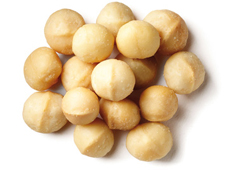
Style 0 - Super Premium Whole Kernels
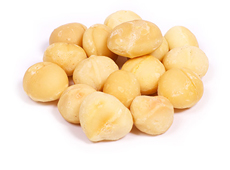
Style 1 - Premium Whole Kernels
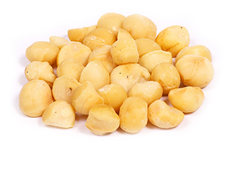
Style 2 - Premium Wholes & Halves
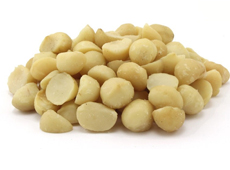
Style 3 – Premium Cocktail Mix
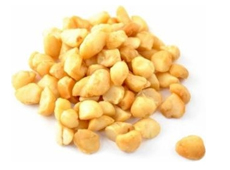
Style 5 – Premium Large Chips
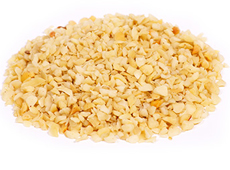
Style 7 – Premium Small Chips
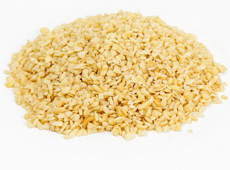
Style 8 – Premium Fine Chips